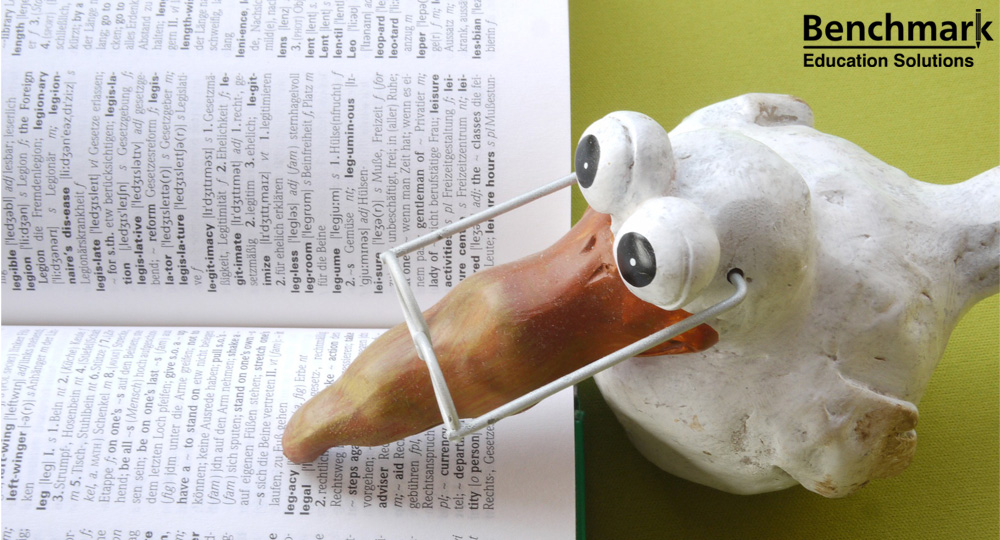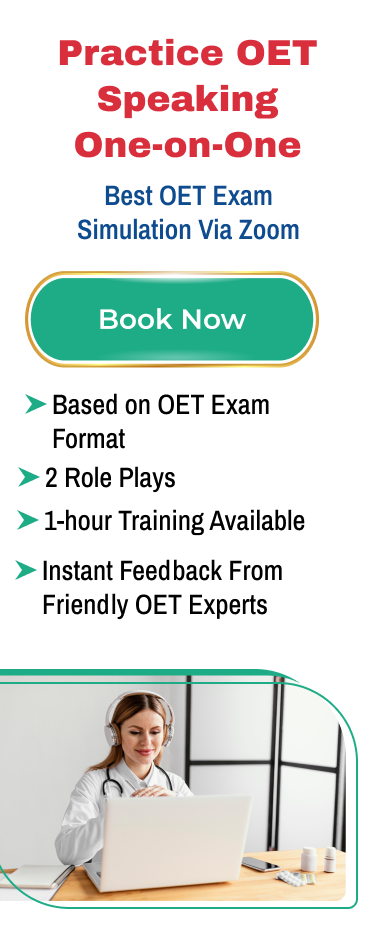How to Make the Most of your Vocabulary


English has more words than any other language, and that makes it one of the most useful and yet most challenging languages to learn. According the Oxford English Dictionary, there are probably at least a quarter of a million words in English… but don’t worry, you don’t need to know them all! Even native speakers don’t know half of those words.
Why do we have so many words available to us? Well, English is a very flexible language. It adapts quickly over time, and incorporates new ideas and even words from other languages. English speakers tend to be very specific with concepts, particularly those involving time. You might have noticed this in your studies already. When you look up a word from French or Chinese or Urdu to find an English translation, there are dozens! However, each word has a really specific meaning that is slightly different from the others. This can be important for those studying medicine in English.
When it comes to preparing for the OET, having a big vocabulary is important. But what is more important is knowing how to use those words appropriately. What this means is the ability to choose the right word for the right situation, and not just a nearly right word. In daily life, it may be acceptable to pick a similar word and have the other person guess your exact meaning, but in medicine it is much more serious. It can even be a matter of life and death.
Speaking Up and Speaking Down
If I said to you, “Speak up,” usually I mean that you need to speak louder because I can’t hear you. However, it also has a different meaning. To speak up and to speak down mean choosing words according to a situation. As a medical practitioner, you need to be able to communicate clearly and effectively with both colleagues and patients. This means that you may need to express the same idea in two completely different ways. Speaking up is how you talk with your co-workers who understand medical terminology and the complex ideas required in this field. Speaking down means simplifying your language so that the patients (or their families) can understand what you mean.
This might sound obvious, but it is important enough to stress here. Of course, it demands a level of dexterity on the part of the healthcare professional. He or she needs to be able to express difficult ideas in two completely different ways, almost like speaking another language. It is not enough just to know the medical jargon, but you also need to know how to translate it into regular English so that a normal person with no medical background can understand. If you can’t do this, you leave the patient feeling confused, angry, or alienated.
Your colleague might inform you that:
• Mr. Napier requires an appendectomy.
However, if this would need to be translated down to the patient as:
• We’re going to have to remove your appendix.
Likewise, someone might tell you:
• My mother has a lot of trouble remembering things.
In this case, you would have to translate this up to:
• Mrs. Hendry is showing signs of amnesia.
This is really important because for medical purposes you need to be specific and convey information in an accurate and appropriate way. However, you also need to be able to relate to patients and tell them what they need to know in a way that is easy for them to understand.
How to Learn New Vocabulary
Learning new vocabulary should be considered an on-going process. You shouldn’t aim to sit down and memorize long lists of words for the OET writing sub-test or any other part of the exam. Instead, picking up new words should be a daily activity, and one that is done in an effective and natural manner.
Rather than learning lists of words, you should pick up words from context. Perhaps you are reading medical journals to keep up with the latest developments. You see a word with which you are unfamiliar. You should follow these steps:
1. Try to guess its meaning from context.
2. Look it up in a dictionary to see if you were right.
3. Write it down in your notebook.
4. Check Google for other examples of how the word is used.
5. Write down several example sentences.
6. Periodically check your notebook to review the meaning of these words.
This is the most organic way of learning new vocabulary, and far more effective than learning big lists.
However, remember the above ideas about speaking up and down. You must figure out how a word is used, and not just what it means. Think about subtle differences both in meaning and also in tone. Look at the following sentences and ask what the difference is:
• She has caught a cold.
• She has contracted a viral infection.
Well, these could have the same meaning, but the second one is far more formal. In the first case, “to catch” means the same as “to contract”, but it is very simple and even a child would use this. “Cold” is also a word with various meanings, but essentially it refers to flu or flu-like symptoms, whereas a viral infection could well be the same thing, but is stated in more descriptive and accurate medical language. These medical words convey specific meaning to medical professionals, but to regular people they can sound frightening, so they need to be swapped for more appropriate ones.
The OET writing criteria informs examiners to test candidates for their knowledge of appropriate vocabulary. This means that the examiner will be looking to see that you have a good range of vocabulary that is employed with accuracy and is also appropriately used. Pay attention to the tasks you are given. If you are communicating to a patient or other regular person with no medical background, you should translate your language down and use everyday words to communicate. Conversely, when you are writing a letter for OET writing that demands a high degree of formality, you should also choose your language carefully to reflect that requirement.












